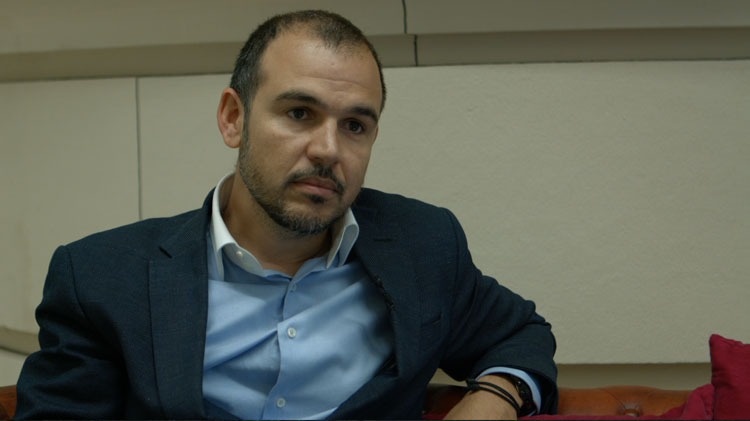How are technologies such as APIs and blockchain forcing companies to transform their business models?
The way we collaborate and do business has changed to a model wherein we need information (data) to make decisions. Also, these decisions are normally made by combining several data sources and looking for the support of other people: spouse, friends, opinion of strangers in forums or social media, professional consultants, etc.
In this collaborative economy, APIs become an essential element in presenting information and operations so that others can use them in a standard and controlled fashion. In my opinion, APIs are the door we have intentionally left open to introduce our products and services to the world so that each individual and company can use them as they believe will bring them value (AS IS, combining other sources, creating aggregate applications, etc.). And we hope to generate some kind of benefit, qualitative and/or quantitative.
And what about the blockchain technology?
Any transaction or operation involves a lot of players. In this context, the blockchain technology will allow companies to do their business in a secure, reliable and unchangeable fashion while doing without the role of “witness” or “notary” as proof of the relationship.
How can the API ecosystem and innovative technologies such as blockchain be fed back?
Digital transformation is more of a cultural than a technological challenge. When you talk about cultural change, you inevitably implement strategies and mechanisms that manage change and eliminate possible rejection.
In reality, we are able to manage and monitor who accesses our APIs but we can’t manage or monitor what they do afterward. Maybe that’s why some APIs offer very limited functionalities. This is normally the case of APIs from financial institutions.
This is where I think a partnership between APIs and blockchain will be valuable since it will be possible to generate “breadcrumbs” of transactions carried out in the context of a trust-based relationship between the parties. Blockchain makes it impossible to falsify transaction data after this has been recorded. Also, the change logs are always available to authorized people.
Which role should the banking sector play in the evolution of these technologies?
No other sector is as interested in blockchain as the banking sector- A lot of institutions are collaborating to innovate in APIs, IoT, machine learning and, particularly, blockchain. A good example is the R3 consortium. It currently consists of more than 40 institutions and major advancements have been made. Microsoft is proud of being one of its technology partners.
Everybody thinks that blockchain is very important for banks because it’s the technology behind the cryptocurrency we are all talking about, bitcoin. This is certainly important but it is not very disruptive for the business model. The real difference is that it focuses on transactions.
Blockchain allows you to record any type of transaction, financial or not, without an intermediary. When you sign a mortgage agreement, can you image how much time and money would be saved if the role of notary as we know it were to be eliminated? Blockchain would make this possible.
How?
Non-financial services such as history management (commercial operations or notary registers), voting systems, copyright or logistics represent a great opportunity for banking institutions since they would allow banks to be more present in their customers’ daily lives. Their involvement would no longer be restricted to the financial transaction.
In addition to the obvious cost savings, banks would get to know their customers better and, as a consequence, would be able to offer them better service as well as products adjusted to their needs, be it their own products, products of commercial partners or even products of their competitors if this meant retaining the customer.
At Microsoft we believe we can help. Using Azure BlockChain as a Service (Azure BaaS) with multiple blockchain partners as smart contracts platforms (Ethereum, Eris or Tenderming), the R3 consortium has created a peer-to-peer distributed ledger to connect banks as diverse as Barclays, Bank of America and HSBC.
Which strategies do you think the technology world should currently be following?
The key is cooperation and collaboration. You need to keep an open mind to improving what already exists; looking for differential value; being able to implement a project using agile and secure platforms that offer innovative, low-cost services. Microsoft’s Azure offers the latter and our customers and partners are using it to develop their strategies.
Is Microsoft doing anything specific to promote APIs?
By levering our experience with services such as Bing.com, Xbox and Cortana, we are providing our customers and partners with services based on pre-trained machine learning models such as the Oxford Project which allows you to recognize the content of a photo or video. Another example is Cortana Analytics Suite, already available on our Azure platform.
One of our differentiating traits is that many of our services allow for the incorporation of new algorithms (e.g. neural networks or decision trees) and even for the optimization of existing prediction models.
In order to promote and socialize APIs, we know we need to go even farther and open the platform to any individual or company. That’s why we have created Azure Marketplace, a sort of shopping window where our partners exhibit their services. We currently have more than 3000 services under API apps, blockchain, data services, web apps, virtual machines, etc.
Is blockchain going to bring about the new technology revolution?
Undoubtedly, since blockchain is a key element in digital transformation toward a global, collaborative economy.
From Microsoft we are working to ensure that companies of any size can benefit from the collaborative economy using Azure Blockchain as a Service (BaaS). Azure BaaS is an open, hyperscalable and secure platform that supports countless blockchain-related technologies to fulfill the needs of a wide range of business scenarios and their technical requirements (performance, security, operation, etc.).
In short, Azure BaaS is a fast, low-risk and low-cost platform for companies to collaborate and experiment with new business and contract processes.
If you want to find out more about BBVA’s financial APIs, visit this website.


























